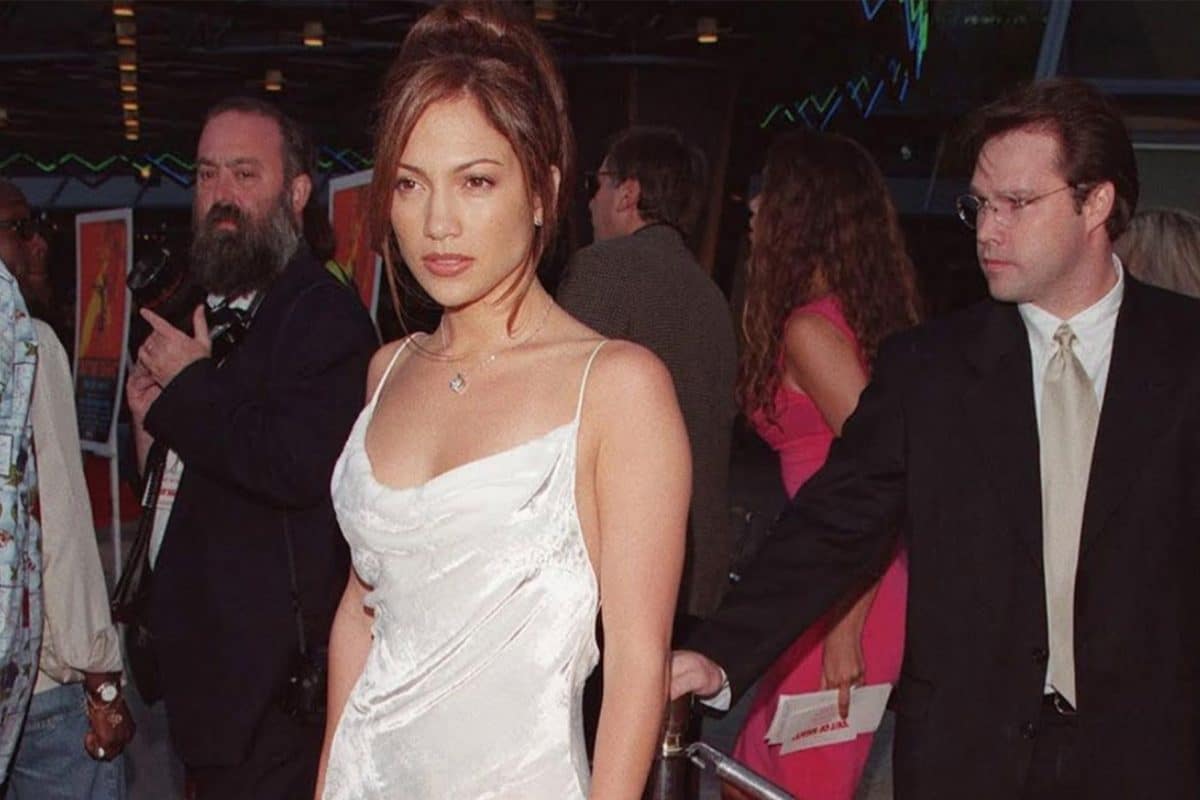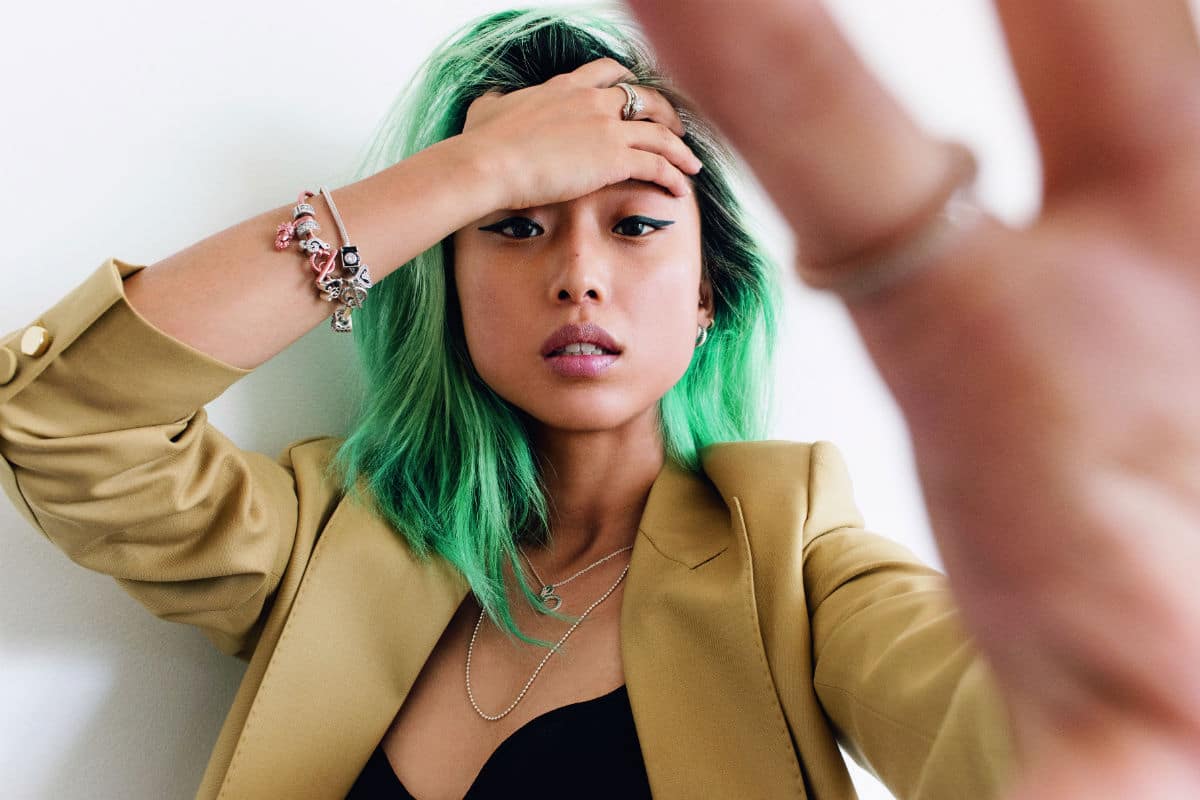
As we approach the close of the year, we're reflecting on both the challenges and triumphs of 2020. The distancing and travel restrictions resulting from a global pandemic have never seen us more separated - but oddly we've also never been more united.
This is the message of Pandora's new Holiday campaign. It's called One Lovely Day, a short film created in partnership with the award-winning Andy Baker Studio. In it, the Pandora Muses, a collective of inspiring women, are transformed into animations on a mission to spread love, holiday spirit and the joy of gift-giving.
The Muses are based all around the world - actress Millie Bobby Brown; designers and DJs Coco & Breezy; actress Nathalie Emmanuel; models and activists Georgia May Jagger and Halima Aden; model, dancer and actress Larsen Thompson; director, writer and consultant Margaret Zhang, and artist Tasya van Ree. Animation was a unique solution to having a distanced cast: a way that all the Muses could be present in the campaign together.
In honour of Pandora's new film and Holiday campaign, we got to spend an afternoon with Margaret Zhang. She shared why love and unity is so important, especially this year, what the future of fashion looks like and why her parents are her personal heroes.
How are you doing in this moment?
I'm good. We're all just very grateful that we can work remotely, and family and friends are all safe and healthy. And well, I'm very glad to be in Australia at this point. Despite the dreadful weather we've had, it's getting warmer. So, yes I'm happy.
Can you tell us a little bit about Pandora is one lovely day campaign?
Yeah. The team and all of the girls that we work with, we had shot the previous campaign remotely. And then for this one, it was an interesting concept to be able to see how brands like Pandora and people like all the girls that are involved are participating in image making remotely. It's [the campaign] an animated version of all of us in a coming together of people in a virtual animated sense. Which I found really interesting, because I think we've all had these challenges, especially in creative industries of you know. How do we generate imagery or storytelling without being able to be in-person? And obviously, different parts of the world are at different stages of being able to do production in-person. So I think this is actually really interesting step in how we'll see product and models, or faces of brands represented moving forward.
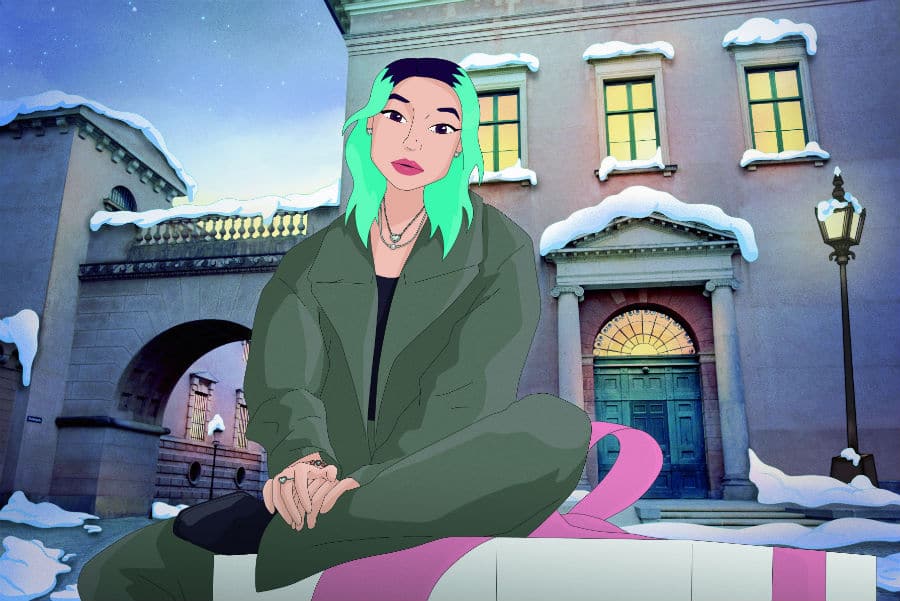
Image still from One Lovely Day created by Andy Baker Studios
What was particularly special to you about this campaign?
It's always nice to work with the girls, before we obviously were shooting in person. The last time we all saw each other was in February, early February before everything hit. So it was nice to kind of be able to virtually reconvene and and, you know, have our collaborative WhatsApp chat going.
What message would you like people to take away from the film?
I think this year for everyone has really forced us to confront what is actually important, individually and what you actually stand for. And I think a lot of it has come back to, you're never going to regret spending more time with your family, or the people that you care about and community. What we love about it, and what the team wanted to convey is that, we're still able to have a sense of community, even though we're not able to physically be with each other - and how fortunate that we have access to technology to be able to stay in touch with the people that we care about. And to build communities and ideological tribes.
Well, I mean, you think about like, families who are in different parts of the world at pre-internet phase at any point - how difficult it would have been to maintain relationships And I think it's kind of like with globalisation, we had way too much too fast. We flew too close to the Sun, so to speak. I mean, obviously, it's not an ideal situation and not great circumstances under which we have to kind of come to this realisation. But I think it's really clarified a lot. How are you going to implement, in your life, the changes on your stance around sustainability. One of the reason why I like to work with Pandora, who are the important women in your life? And how are you going to support them in their endeavours? or how can you work together? And how do you make the most of time with family?
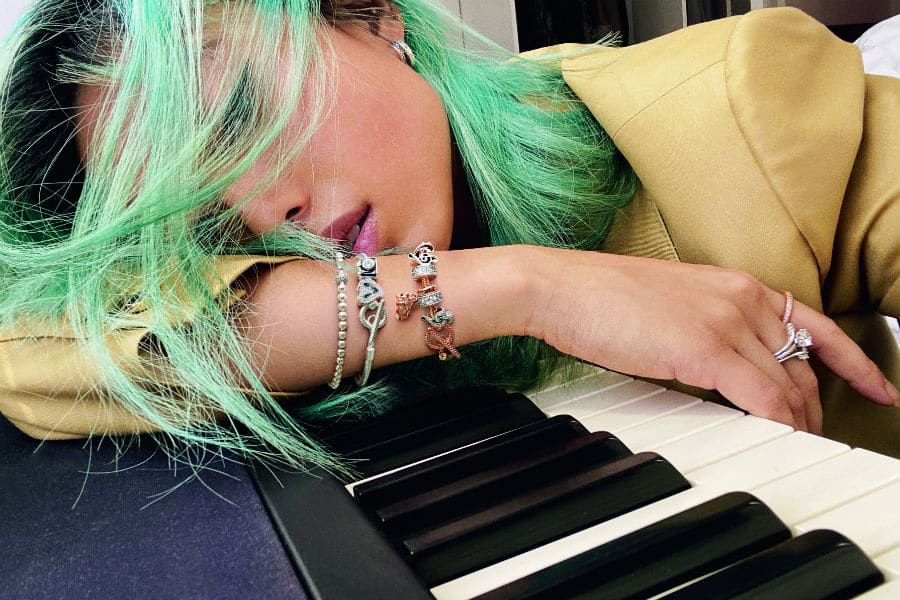
What's your individual approach to style?
I think I'm a very practical dresser. Obviously, pre-2020, when we were doing a lot more set work. It was always very important for me to never feel restricted, and always be able to be comfortable. There's nothing worse than kind of either feeling self-conscious, because you're not completely comfortable or wearing something that's a little more restrictive than you wanted it to be.
I would say I'm very pragmatic, in that sense. But you know, in order to do that, and because you're doing a lot of moving through different roles throughout the day, I'm definitely more of a layering dresser
How you staying creative during this time?
I'm very lucky in that. I'm mostly focused on film, at the moment. I'm sort of working on a few of my first feature films in a number of different capacities of writing and directing and acting, and because those are quite long timelines anyway, they were never going to happen within this year. Unlike the fashion cycle, which is really seasonal, it's been actually super beneficial to force myself to do the writing that I'm supposed to be doing. And to be able to actually take a lot more meetings than I physically would have been able to when everyone thought that we had to fly places to connect with people in-person.
It's been good to be able to have a lot of things burning at the same time, so that I can, you know, jump between each one. And I'm definitely one of those people who, if I just had one project, I would just never finish it, you know? I definitely need to have seven things happening at the same time on varying scales. So when I'm doing something over here, then I'll think about, you know, I'll have inspiration or stimulus from that to do something else. And then just juggling and bobbing cogs between the three, and it helps you kind of keep some momentum, especially now when you're not having the general creative stimulus of being out and having conversations with people as much. You underestimate really how important those social interactions or just like circumstantial stimulus are for you to even generate ideas, -or like interaction with colour and stuff.
When I was still in New York, when all I was looking at was when in my one bedroom apartment, you do feel that flat. So it's good to be able to have a number of things happening.
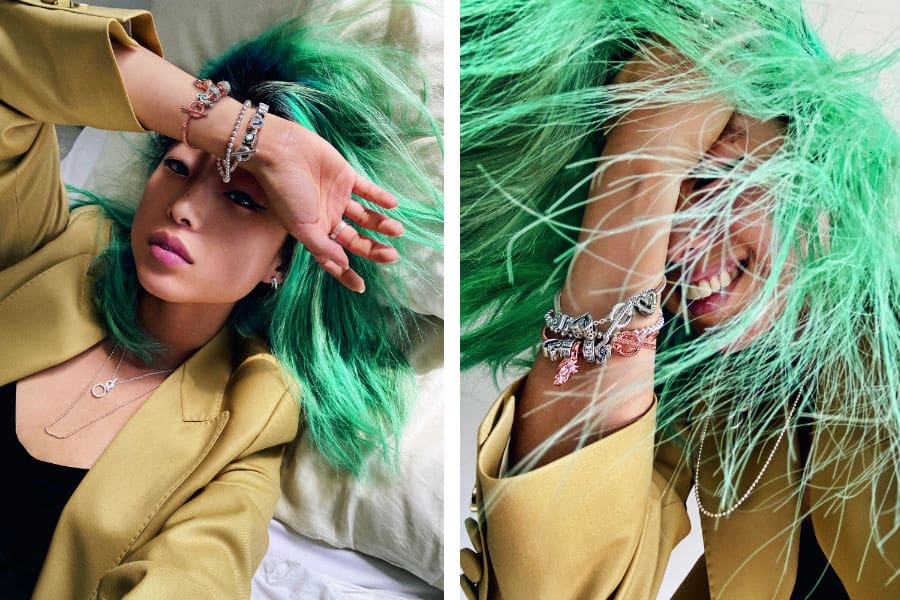
What do you think the future looks like for creativity and fashion post pandemic?
It is interesting, because I think that we are having the reckoning that we've been meaning to have, and we should have had around technology. There's a lot of kind of clinging to traditions - for good reason I guess because of like the sanctity of the artists vision as far as fashion designers. But, you know, I've spoken on a summit in the past couple of weeks in complete virtual reality as an avatar of myself, which was interestingly way more seamless than a zoom panel. The panel that I spoke on was specifically about digital product and what makes a brand and can you take that brand equity into something that's not like physical, tangible products that we have in our hands on? And what's the relationship between those things? And, you know, I think, again, it's that same clarity where the entire industry has just had to take a beat, really assess what is excess and what's actually really important to the brand.
And consumers have been able to demand more transparency of brands and ask brands to stand for something and actually practice what they say they're practicing. You know, the difference between branded sustainability and practice sustainability, or branded inclusivity and diversity and actual practice inclusivity and diversity? I mean, I'm very hopeful for the industry. Obviously, it's very difficult for small businesses right now. But I think it presents huge opportunities for things like that were really sold as gimmicks previously, like wearable tech or, you know, virtual reality. It was always just a fun thing, that someone did as a concept one time and never really thought it could be a part of our lives. But it feels a lot more real now because it has to.
You should definitely try. If you have access to an Oculus, or, you know, one of those VR headsets is pretty amazing. I was shocked. Like, I, I thought it would still be so clunky. And, yes, there are technical difficulties. But it's a way more fluid and experience. And it feels way more real. And there's no doubt that technology will develop really quickly. It's really exciting.
What's the one thing you wish more people knew about you?
This is tricky, because I feel like I've learned over the past decade to not really mind what people think about me. I think this is true, actually, of a lot of my friends, either in the fashion business or in the film business where - especially when you start young, because I started when I was 16 - I think there's a tendency for people that you meet in the industry really early on, or even your audience to remember you as the person you were. Or the way that you present or, you know, your career trajectory from 10 years ago. And and you know what? I think we we both know, plenty of actors and models and writers and people who've evolved in their career, who are stuck with the perception of this one thing they did, or this, you know, one article that they wrote, or this one project that they worked on way back when. I think this, especially for women, there's so little space in kind of the social collective consciousness to allow for evolution, which is kind of counterintuitive, because we as people, like the person you are when you're 16 is so vastly different from you now.
I'm 27 now, it's almost like people expect you to remain the same forevermore because that's what they knew. And that's what they're comfortable with. And that's very human, I suppose. As I evolved kind of more into the film space, which is something that I've always wanted to do, and I kind of accidentally ended up in fashion. I think there is still a tendency for people to gravitate towards what they knew of me as a 16 year old, when I liked tapping away on my blog spot. I think that that's definitely something where, you know, I think for all people - I don't think I just speak for myself - people are allowed to have a goal to have evolution and we should all be more open minded to that, I suppose.
In other words, I feel like I'm generally quite a private person or a nerd. I love food.
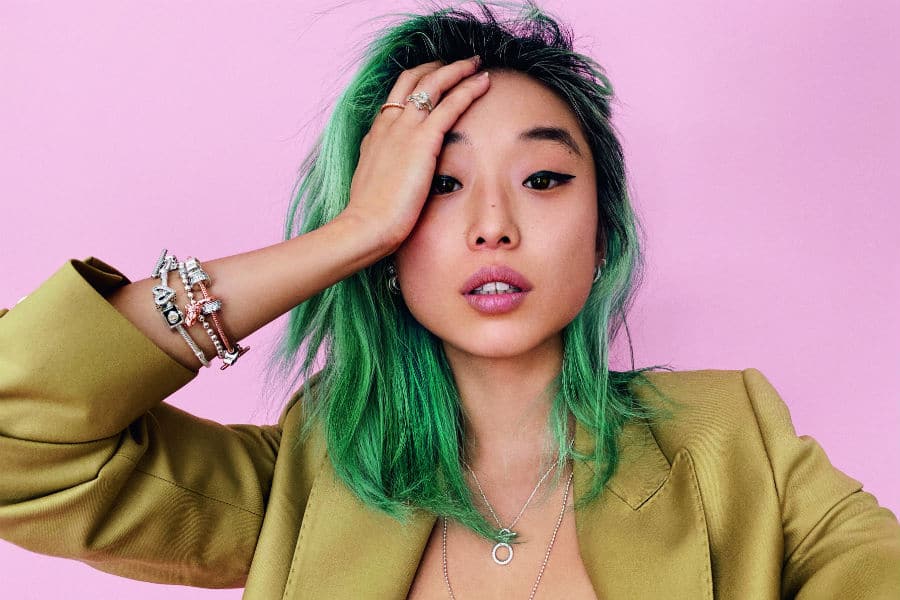
Who is your personal hero?
I would say my parents, and I think most children of immigrants would say that as well. I think in adulthood, you definitely realise, you know, how much they've sacrificed even if they don't qualify as sacrifice, so that you can have great opportunity. I don't think my parents even realise, you know, how much of their work ethic and their values and, their trust in whatever I was doing with my career and my studies and how much grace they gave me on that. And allowing me to kind of experiment and being super supportive. Always. So yeah, I would say both my parents are my personal heroes
Do you have any word to live by?
I would say stick to your guns.
There's always so much pressure to conform to weather as industry standards, or central standards of how you should be in order to be perceived as successful or perceived as the right type of person, whether that's aesthetically or ideologically, or in the way you speak, or, you know, personality traits, whatever it is. And I think it's important to know yourself, before you kind of go into a group situation or know yourself before you allow external stimulus, decide who you are.
And it's obviously easier said than done, right? Because we are porous creatures who want to belong. But, especially in this year, to be able to sit like with yourself, and not be intimidated by being on your own and not being kind of qualified by other people's projections of who you think you should be, who they think you should be. I think that's such an important thing. And no doubt something that a lot of people are struggling with right now. Especially if you're like a social creature and want to be out in the world and validated by that kind of social interaction.



